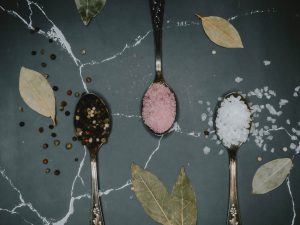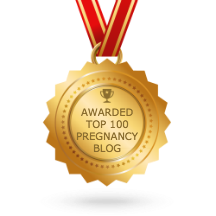There are three essential ingredients in a pregnancy diet in addition to drinking plenty of fluids. These three ingredients can help you stay healthy during your pregnancy and grow a healthy baby. These three combined daily can help you have a better, safer, healthier birth. They are…
PROTEIN, CALORIES, AND SALT.
PROTEIN
Every cell is formed from protein: the baby, the uterine muscle, the amniotic sac, the amniotic fluid, and the blood you make for your baby and yourself. In addition to getting enough protein, daily, during pregnancy, you also need to eat enough calories. But if you eat enough calories but you don’t eat enough protein, you are depriving your baby of the necessary protein blocks needed for a healthy start to life.
CALORIES
If you eat enough protein but not enough calories, your body will use the calories from protein to fuel YOUR body. This results in your baby not getting the benefit of those calories.
SALT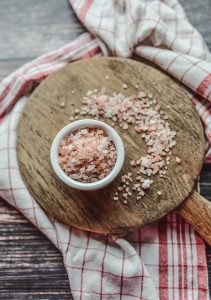
As I mentioned above, your body will build blood for you and your baby. By full-term, you will have 50-60% more blood in your body than when you are not pregnant. Salt is required for building blood. Salt is a key component of blood volume expansion. Blood volume expansion is necessary for a properly nourished fetus.
WHAT HAPPENS WHEN THERE IS NOT ENOUGH SALT IN YOUR PREGNANCY DIET?
Without enough salt, the fluid moves outside the blood vessels, and your heart must work harder to keep the same amount of blood flowing through your pregnancy body. When this happens, the pregnant woman’s blood pressure can rise. Complications can ensue.
BLOOD VOLUME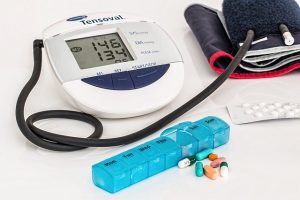
A lack of salt is often the reason for a lagging blood volume during pregnancy, and a lagging or falling blood volume is the cause of a variety of pregnancy complications and health risks for both the mother and the baby.
If blood volume doesn’t increase as it should, the pregnant woman’s body “panics” as though it is hemorrhaging. It causes the blood vessels to constrict and this raises blood pressure. Adding more salt to the diet can help with increasing the mother’s blood volume and reversing the process of rising blood pressure, preeclampsia, and fetal growth restriction, among other complications
Some of the risks with high blood pressure in pregnancy are:
- Decreased blood flow – less oxygen and nutrients to the placenta/fetus
- Placental abruption – the risk of death to mother and baby
- Intrauterine growth restriction – fetus doesn’t develop/grow sufficiently
- Injury to your other organs
- Premature delivery – breathing problems, developmental delay, vision and hearing problems
LIVER FUNCTION AND SALT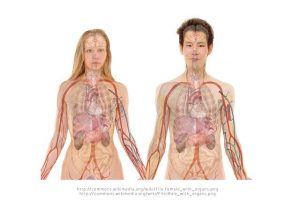
Salt in the pregnancy diet helps to regulate water content within the body. The Brewer Diet recommends salting your food to taste. Don’t just add extra salt, but truly taste your food. If it tastes as though it needs salt, then add it to taste. Don’t ignore your taste buds.
If you are eating a lot of processed foods, there is likely a lot of extra sodium in your diet. Try eating less processed foods. In short, that means foods with less stops from farm to table. Avoid “ready-to-eat” meals, pre-packaged meals and snacks, frozen meals, microwave meals, and snacks.
Your liver requires some salt to function. Below, are some of the tasks of your liver:
- Your liver removes toxic byproducts of foods, medications, and chemicals.
- The liver breaks down nutrients from the food you eat to give you energy.
- It produces most proteins needed by the body.
- It helps your body fight infection by removing bacteria from the blood.
- The liver produces bile to help digest fats and absorb essential vitamins.
I THOUGHT SALT RAISED BLOOD PRESSURE!
PRESSURE!
Blood volume expansion is one of the most important jobs the pregnant body has.
High blood pressure in the non-pregnant body is from expanded blood volume – not something desired in a non-pregnant body.
High blood pressure in the pregnant body is from a lack of blood volume.
PINK SALT, SEA SALT, OR CELTIC SALT
Use the better salt for you and your baby. “White table salt is higher in sodium than pink salt. But pink salt has more calcium, potassium, magnesium, and iron. “ https://www.healthline.com/nutrition/pink-himalayan-salt#TOC_TITLE_HDR_5
THE BREWER PREGNANCY DIET IS WORKING IF:
- No swelling (some in the feet is ok starting at 38 weeks)
- Steady blood pressure readings based on YOUR normal taken correctly (get a baseline, take BP regularly at home)
- Serum albumin levels of 3.5-5.5 (urine test measuring protein in urine)
- HGB/HCT drops around 28 weeks (HGB is a protein stored in red blood cells. HCT measures level of healthy red blood cells)
According to the Brewer Pregnancy Diet, it is not possible for a healthy pregnant woman to get too much salt. Even after two weeks of “salting in moderation”, the blood volume of a pregnant woman can be shown to be falling behind schedule. It is much more likely for a pregnant woman to not be getting enough salt than it is for her to be getting too much.
Think of all three components. Together they are essential to keeping the pregnant mother healthy and growing a healthy baby. Think Protein, Calories, and Salt, plus plenty of fluids.
Liza Janda is a Certified Childbirth Educator AAHCC, Certified Lactation Education Counselor, Experienced Registered/Certified Prenatal Yoga Teacher, E-PRYT200, and Experienced Registered Certified Yoga Teacher E-RYT200. With a combined 40+ years of teaching, Liza has a passion for Healthy Pregnancy, Labor, Birth, Babies and Moms, Breastfeeding, and Yoga. Her goal is to help women and families create their best pregnancies and births through childbirth education and yoga and to help moms and babies get breastfeeding education and support before and after the baby arrives.

